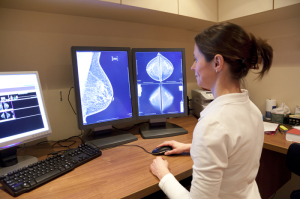by
Lauren Dubinsky, Senior Reporter | October 21, 2016

More guidelines is not the answer
Almost one-third of breast cancer patients aren't receiving a recommended annual mammogram, according to research presented at the Clinical Congress of the American College of Surgeons annual meeting.
Researchers at the University of Wisconsin School of Medicine and Public Health investigated the use of surveillance mammography and breast MR in women who underwent a surgical procedure to treat Stage II and II breast cancer. The data, which came from the National Cancer Database, included 9,622 women who underwent the procedure from 2006 to 2007.
They evaluated imaging exams, cancer recurrence, new cancers and death, from the time the patients were treated until five years after they were diagnosed. They also collected data on the reasons the patients underwent imaging — whether it was to assess a new symptom or for surveillance.



Ad Statistics
Times Displayed: 57652
Times Visited: 1710 Ampronix, a Top Master Distributor for Sony Medical, provides Sales, Service & Exchanges for Sony Surgical Displays, Printers, & More. Rely on Us for Expert Support Tailored to Your Needs. Email info@ampronix.com or Call 949-273-8000 for Premier Pricing.
They found that the number of patients who underwent imaging for surveillance decreased 8 percent from 66 percent in the first year to 58 percent in the fourth year. Additionally, only 10 percent of women who received surveillance imaging underwent breast MR exams.
Furthermore, they found that women who didn't receive follow-up breast imaging were predominately younger, or black, had public or no insurance, worse health, more advanced cancers or underwent a mastectomy.
The majority of the disparity appeared within the first year of follow up. Because of that, the researchers concluded that if a woman received follow-up care in the first year then she might continue to undergo imaging, but if she didn't, then she would not be likely to receive recommended imaging over the long term.
More guidelines are being published to standardize care, but the researchers question whether or not guidelines alone can improve the situation.
"I think it's important for health care practitioners to realize that it's not enough to just put information out there," said Dr. Caprice C. Greenberg, lead research of the study, in a statement. "Instead, we have to be more thoughtful about how we implement what we recommend into the actual care process."

